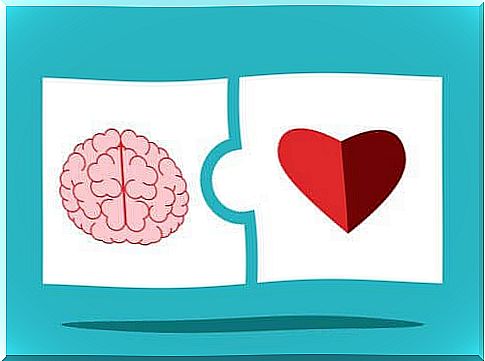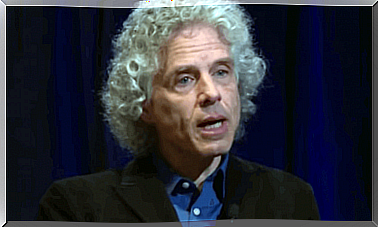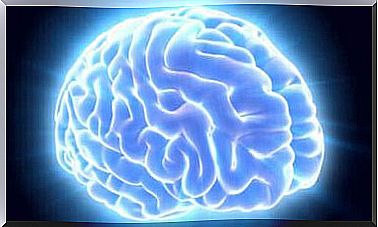The Dark Side Of Emotional Intelligence

The concept of emotional intelligence was invented in 1990 by Salovey and Mayer. It was popularized a bit later by a book by Daniel Goleman. This ability has been recognized in many disciplines as a crucial skill for success on various levels. Whether academically, professionally or personally.
The book that Goleman published has become a benchmark for the revolution. Thus, the concept of emotional intelligence has spread around the world, in theories, discussions, studies and debates. In 2002, UNESCO even included it in education programs for 140 countries, as an essential part of emotional learning.

What is emotional intelligence?
The first definitions of intelligence referred to cognitive skills, putting emotions aside. After that, it started to be debated and theories proposing the idea of multiple intelligences arose. This made it possible to classify intelligence according to different types, such as mathematical, linguistic or emotional intelligence.
We then spoke of intrapersonal intelligence. This concept referred to the ability to know one’s emotions and feelings through self-analysis. Goleman then published his book and gave the name emotional intelligence to this idea.
For him, it is synonymous with the ability to motivate oneself, to persevere in the face of frustrations, to control one’s impulses. It also means regulating one’s mood and being able to empathize and trust others.
Components of emotional intelligence
Eight components have been identified in this theory that refer to the previous definition:
- Emotional self-knowledge: refers to the ability to identify, know and express, reliably and adequately, one’s own feelings and emotions, as well as their effects.
- Emotional self-control: this is the ability to control one’s own impulses
- Self-motivation: this is what allows you to achieve your personal goals, by adequately managing your emotions
- Empathy: defined as the ability to respond appropriately to the needs expressed by others, as well as the ability to share those feelings
- Interpersonal relationships: in this case, it is the ability to relate effectively to others, making them feel good and generating positive emotions
This theory has had great success. O n began to see it as something basic and complementary to traditional intelligence. We therefore accepted the idea that these emotional skills have an influence on the adaptive and cognitive capacities of people.
What do we know?
The enthusiasm for emotional intelligence as a predictor of success has exploded assumptions, models and research in this area. The curious thing is that the concept became popular even before we knew much about it.
We have learned, for example, that people who have greater emotional intelligence tend to display better health and better life satisfaction. They also go further in their profession and have fewer interpersonal problems.
In all this boom, we began to analyze public leaders. It was believed that they must have a special ability to recognize, understand and deal with the emotions of others. Among them, we studied one of the most influential leaders of the twentieth century, Adolf Hitler.
This gave rise to a line of research with little comment: the negative side of emotional intelligence.
The dark side
As previously commented, Adolf Hitler may have exhibited high emotional intelligence. An additional weapon that would have served him to lead, with the disastrous consequences that we know.
This would be one of the greatest examples of how the ability to interpret one’s emotions and those of others is not always put to good use. And this is where several social researchers have started to look.
Emotional intelligence has been linked to narcissism. A group of Austrian researchers studied more than 600 people, finding that those with higher scores on the scales tended to “seduce” others to satisfy their own interests, above those of other people.
Another Michigan study pointed out that narcissism is deeply linked to the ability to recognize one’s own emotions, something which, while essential in terms of empathy, makes it easier to manipulate others.
A University of Toronto study found that a person with high emotional intelligence is more likely to shame others in order to gain their own recognition. Moreover, this study revealed a curious fact: these same people are more adept at recognizing negative emotions than positive ones.
In this same university, we could also see, by evaluating Machiavellian tendencies, that these workers who sabotaged their own colleagues had greater levels of emotional intelligence.

Conclusion
Emotional intelligence is the ability to recognize and reflect on one’s own emotions, as well as those of others. It is therefore a very important skill to live with greater well-being, by giving emotions this important role that they already play. This faculty is crucial to achieve its goals because it influences other personal abilities.
Even so, it falls to other factors, probably personal, moral, and contextual, to ensure that this great skill is used to do good, to oneself and to others.
Being emotionally intelligent therefore does not mean that you manage your emotions better. But that you have to take into account their different components and manage them in the right direction.










